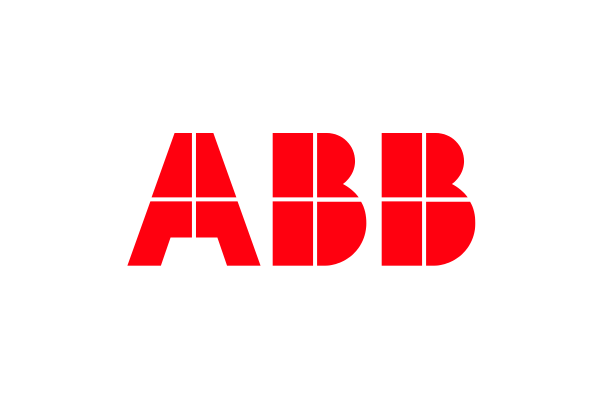“Lube oil,” or lubricating oil, is a type of oil used to reduce friction, wear, and heat generation between moving parts in engines, machinery, or other mechanical systems. It helps to ensure smooth operation and longevity of the equipment. Here are the key aspects of lube oil:
- Purpose of Lubricating Oil
- Reduces Friction: It forms a thin film between moving parts, which prevents direct contact between metal surfaces. This reduces friction, which can cause wear and tear on components.
- Reduces Wear and Tear: By minimizing friction, lube oil helps extend the life of machinery or engine parts.
- Cools Components: The oil absorbs heat generated by moving parts, preventing overheating. It circulates through the system to carry away heat and maintain a stable operating temperature.
- Cleans and Prevents Deposits: Lube oil helps trap contaminants, dirt, and metal particles from wear. It carries these particles to the oil filter where they are removed, preventing harmful build-up and ensuring better performance.
- Prevents Corrosion: Lubricating oil forms a protective layer that helps prevent moisture and acidic compounds from causing rust and corrosion on metal parts.
- Types of Lubricating Oil
- Mineral Oil: Derived from crude oil, it’s the most basic and widely used type of lubricating oil. It’s used in many everyday applications, from car engines to industrial machinery.
- Synthetic Oil: Manufactured through chemical processes to provide superior performance, especially at extreme temperatures or under high-stress conditions. It tends to last longer and provides better protection than mineral oil.
- Semi-Synthetic Oil: A blend of mineral and synthetic oils, offering a balance between performance and cost.
- Bio-Based Lubricants: Made from renewable resources, these oils are environmentally friendly and designed to reduce environmental impact.
- Properties of Lubricating Oil
- Viscosity: This is the oil’s resistance to flow. It determines how easily the oil flows at different temperatures. Lower viscosity oils flow more easily at cold temperatures, while higher viscosity oils are thicker and work better at high temperatures. This is why you’ll see engine oils rated with numbers like 5W-30 or 10W-40 (e.g., “W” stands for winter, indicating cold-start performance).
- Additives: Lubricating oils often contain additives to enhance performance, such as:
- Detergents to clean engine parts
- Dispersants to keep contaminants suspended
- Anti-wear agents to protect metal surfaces
- Anti-foaming agents to reduce air bubbles and foam
- Corrosion inhibitors to protect parts from rust
- Flash Point and Fire Point: These refer to the temperatures at which the oil will ignite or catch fire. The higher the flash point, the safer the oil is in high-temperature environments.
- Pour Point: This is the lowest temperature at which the oil remains fluid. A lower pour point means better performance in cold conditions.
- Lubricating Oil Applications
- Automotive Engines: Car engines use lubricating oil to keep moving parts like pistons, crankshafts, and valves running smoothly. Different types of engines (e.g., gasoline, diesel, hybrid) require specific types of oil.
- Industrial Equipment: Manufacturing machinery, turbines, compressors, and hydraulic systems rely on lubricants to minimize wear and improve efficiency.
- Marine and Aviation Engines: High-performance engines in boats and aircraft also need specialized lubricants to withstand extreme operating conditions.
- Heavy Equipment: Oil is crucial in heavy-duty machinery, like construction equipment (bulldozers, excavators) and mining machinery, where durability and longevity are essential.
- Maintenance and Oil Change
- Regular oil changes are necessary to maintain the effectiveness of the lubricant. Over time, oil breaks down due to exposure to heat, oxygen, and contaminants.
- In engines, for example, oil may become more viscous or contaminated with carbon particles, which could lead to reduced performance and potential damage.
- The interval between oil changes depends on the type of oil used, the manufacturer’s recommendation, and how the machinery is used. For cars, it’s typically recommended every 3,000 to 10,000 miles, but synthetic oils often last longer.
- Choosing the Right Lubricating Oil
- The correct type of oil depends on the specific requirements of the engine or machinery in question (e.g., temperature range, operating conditions, manufacturer specifications).
- In automotive applications, oil types are often indicated in the owner’s manual and follow standard classifications.
Lubricating oil plays a crucial role in keeping machinery functioning efficiently, reducing maintenance costs, and extending the lifespan of mechanical systems.
- The Benefits of High-Quality Lubricants
Investing in high-quality lubricating oils can significantly improve the performance and longevity of your equipment. Here’s why premium lubricants matter:
- Improved Efficiency: High-quality oils reduce internal friction, allowing your machinery to run more efficiently. This can lower operating costs and boost your overall productivity.
- Extended Equipment Life: Quality lubricants help protect your machinery from wear, rust, and corrosion, ensuring that parts last longer and reducing the need for frequent repairs.
- Better Performance in Extreme Conditions: Whether you’re dealing with extremely high or low temperatures, high-performance oils are designed to provide stable viscosity and reliable protection under demanding conditions.
- Reduced Maintenance Costs: With the right oil, the frequency of repairs and downtime is reduced, saving you money on maintenance, spare parts, and labor.
- Eco-Friendly Options: Many modern lubricants are designed to be more environmentally friendly, helping your business meet sustainability goals and reduce its environmental footprint.
- How to Choose the Right Oil for Your Equipment
Selecting the right lubricating oil depends on the type of equipment you’re using and the specific requirements for performance. Here’s what you need to consider:
- Viscosity: The oil’s viscosity (thickness) must match the operating conditions. For example, colder temperatures require lower-viscosity oils, while high temperatures may need thicker oils for better protection. Oils are typically rated with numbers such as 5W-30 or 10W-40, where “W” refers to winter performance and the number represents viscosity at high temperatures.
- Application Type: Different machines require different oils. Engine oils, industrial oils, hydraulic oils, and gear oils each serve specific functions and have unique formulations tailored to their applications.
- Synthetic vs. Mineral Oil: Synthetic oils are engineered for superior performance, particularly under extreme conditions, while mineral oils are more affordable and generally suitable for standard equipment. Your choice will depend on the specific requirements of your machines, operating conditions, and budget.
If you’re unsure about which oil to choose, our team of experts can guide you in selecting the right product for your needs.
- Why You Should Trust Al-barrengineering for Your Lubricating Oil Needs
As a leading supplier of high-quality lubricating oils, we understand that your machinery and equipment are the backbone of your business. Here’s why partnering with us can help you maintain peak performance:
- Wide Selection of Products: We offer a diverse range of lubricating oils, including mineral oils, synthetic oils, and eco-friendly lubricants, catering to a variety of industries, from automotive to manufacturing and agriculture.
- Expert Guidance: Our knowledgeable team is available to help you choose the right product for your specific applications. We take the time to understand your needs and provide personalized recommendations that can improve the efficiency and reliability of your equipment.
- Competitive Pricing: We offer cost-effective solutions without compromising on quality. Our competitive prices ensure that you get value for your money while maintaining the performance of your machinery.
- Reliable Delivery: We understand the importance of minimizing downtime. That’s why we offer fast and reliable delivery services, ensuring you always have the products you need when you need them.
- Sustainability: We offer environmentally-friendly lubrication options for businesses looking to reduce their carbon footprint. These eco-friendly lubricants are designed to provide high performance while being less harmful to the environment.
- Regular Maintenance: Don’t Forget the Oil Change!
Even the best lubricating oils degrade over time and need to be replaced to maintain performance. Regular oil changes are essential to keep your equipment running smoothly and prevent issues such as overheating, friction, and corrosion.
For automotive applications, we recommend changing the oil based on the manufacturer’s guidelines—typically every 3,000 to 10,000 miles, depending on the type of oil used. For industrial machinery, oil change intervals can vary based on usage and the type of equipment. Our team can provide you with specific guidance on how often to change your oil for different applications.
- Conclusion: Keep Your Equipment Running Longer and Better with the Right Oil
Lubricating oil is a small investment with a big impact on your business’s bottom line. By choosing high-quality oils that meet the specific needs of your equipment, you can enjoy improved performance, reduced downtime, and lower maintenance costs. At [Your Company Name], we’re dedicated to providing you with the best products and support to help your business thrive.
Contact us today to learn more about our products, get expert advice, and place your order for premium lubricating oils!











